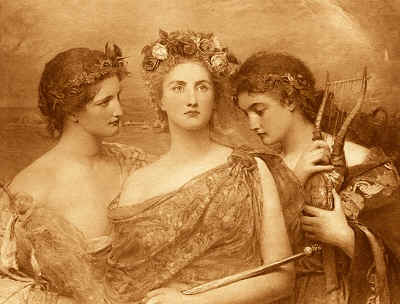
La poesía del irlandés William Butler Yeats (1865-1939) cantó en sus comienzos los mitos antiguos de Irlanda con un lenguaje musical exquisito. Luego, abandonó los excesos ornamentales buscando una poesía más desnuda.
A LA ROSA QUE ESTÁ SOBRE LA CRUZ DEL TIEMPO
¡Rosa roja, orgullosa Rosa, triste Rosa de mis días!
Acércate mientras canto antiguas tradiciones:
Cuchulain combatiendo con la fiera marea,
el canoso Druida, criado en el bosque, de ojos calmos,
que sumió en sueños a Fergus, y en la ruina,
y tu propia tristeza, de la que las estrellas, envejecidas
de bailar con sandalias de plata sobre el mar,
cantan con su alta y solitaria melodía.
Acércate: que, no cegado ya por el destino humano,
bajo las ramas del amor y el odio hallo
en cuantas cosas necias viven sólo un día,
la belleza eterna, errante en su camino.
¡Acércate, acércate, mas deja
un hueco con que llenar tu aliento!
Para no oír más cosas vulgares que imploran,
la larva que se oculta en su agujero,
el ratón que junto a mí cruza la hierba
y esperanzas mortales que se afanan y pasan;
sino que sólo busque las extrañas cosas dichas
por Dios a los que han muerto ya hace mucho
y aprenda a cantar con una lengua ignota.
Acércate; quiero, antes que mi tiempo acabe,
cantar a la vieja Eire y sus leyendas.
¡Rosa roja, orgullosa Rosa, triste Rosa de mis días!
La rosa, 1893. Traducción de Antonio Rivero Taravillo.
TO THE ROSE UPON THE ROOD OF TIME
Red Rose, proud Rose, sad Rose of all my days!
Come near me, while I sing the ancient ways:
Cuchulain battling with the bitter tide;
The Druid, grey, wood-nurtured, quiet eyed,
Who cast round Fergus dreams, and ruin untold;
And thine own sadness, whereof stars, grown old
In dancing silver-sandalled on the sea,
Sing in their high and lonely melody.
Come near, that no more blinded by man’s fate,
I find under the boughs of love and hate,
In all poor foolish things that live a day,
Eternal beauty wandering on her way.
Come near, come near, come near—Ah, leave me still
A little space for the rose-breath to fill!
Lest I no more hear common things that crave;
The weak worm hiding down in its small cave,
The field-mouse running by me in the grass,
And heavy mortal hopes that toil and pass;
But seek alone to hear the strange things said
By God to the bright hearts of those long dead,
And learn to chaunt a tongue men do not know
Come near; I would, before my time to go,
Sing of old Eire and the ancient ways:
Red Rose, proud Rose, sad Rose of all my days.
The rose, 1893.
UNA CAPA
De mi canción hice una capa
Cubierta de mitos viejos
Desde los pies hasta el cuello.
Pero los tontos la cogieron,
Llevándola ante la gente
Como si la hubieran hecho.
Canción, deja que la lleven,
Porque más resolución hay
En andar desnudo.
Responsabilidades, 1914. Traducción de Luis Cernuda.
A COAT
I made my song a coat
Covered with embroideries
Out of old mythologies
From heel to throat;
But the fools caught it,
Wore it in the world’s eyes
As though they’d wrought it.
Song, let them take it
For there’s more enterprise
In walking naked.
Responsabilities, 1914.